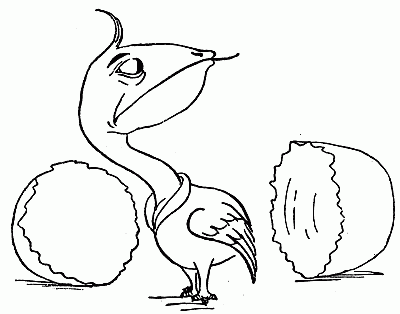A couple of years ago, in a trendy Inner West cafe, I spied a Very Committed Dad sitting across from his terribly young daughter. They could barely see each other over the small mountain of branded flashcards in the middle of the table. Dad scooped up a deck’s worth, and shuffled them like a croupier.
My super-speech-senses activated. I couldn’t resist eavesdropping:
Said Dad:
Ruby, say…
Tiger
Lion
Crocodile
Ostrich
Zebra
The list of wild animals went on and on. Then came fruit, and shapes, and numbers, and finally body parts. All the favourites you see in lots of colourful products targeted at parents, stroke survivors and speech pathologists, alike.
I rolled my eyes and went back to sipping my Long Black and ignoring the Norah Jones song. Why?
Consider: what did Dad’s words have in common? Two things:
1. They were all nouns, which couldn’t themselves be combined to produce meaningful phrases and sentences.
2. Unless planning a safari on a tropical island inhabited by shape-shifting surgeons, they were not the most useful set of words for a young child to know.
What should Dad have been focusing on?
Van Tatenhove has done lots of research on the normal language development of children. Her findings (2005) tell us that the focus for new vocabulary in children with developing language should be on high frequency, re-usable vocabulary that can be combined and used across a number of events and activities needed throughout your life. These words are sometimes referred to collectively as “core vocabulary“.
Like most great research, the answer seems obvious once you ask the right question!
But which words to teach?
- Van Tatenhove has looked at this question in the context of which words to include in communication devices for young children with disabilities. She recommends words from a variety of word classes, including pronouns (I, me, you, it, mine, he, and she); verbs (do, put, is, make, let, get , want); negation (no, not, don’t); prepositions (with, for, to, in, on); question words (what, where); modifiers (gone, more, small, all) and generic locations (here, there, away).
- In 2003, a Dr Banajee and colleagues identified the top 22 words used by typically-developing toddlers. For a late-talking child, these may be a good place to start – unless he or she also has a speech sound disorder impacting on expressive language – a complicated and entirely different topic for another day!
Banajee’s words:
1. all done/finished
2. go
3. help
4. here
5. I
6. in
7. is
8. it
9. mine
10. more
11. my
12. no
13. off
14. on
15. out
16. some
17. that
18. the
19. want
20. what
21. yes/yeah
22. you
Certainly all much more useful than teaching your child the words necessary to describe this:
 Images source: http://tinyurl.com/mohbzqm
Images source: http://tinyurl.com/mohbzqm
Related articles:
- Late talkers: kick-start language with these verbs
- Late talkers: how I choose which words to work on first
- Why I tell parents to point at things to help late talkers to speak
- “He was such a good baby. Never made a sound!” Late babbling as a red flag for potential speech-language delays
- Does my child have a language disorder? 6 questions speech pathologists should ask before assessment
- Are language development and motor development related?
- 6 principles we follow when assessing toddlers for language delays and disorders

Hi there, I’m David Kinnane.
Principal Speech Pathologist, Banter Speech & Language
Our talented team of certified practising speech pathologists provide unhurried, personalised and evidence-based speech pathology care to children and adults in the Inner West of Sydney and beyond, both in our clinic and via telehealth.



Leave a Reply